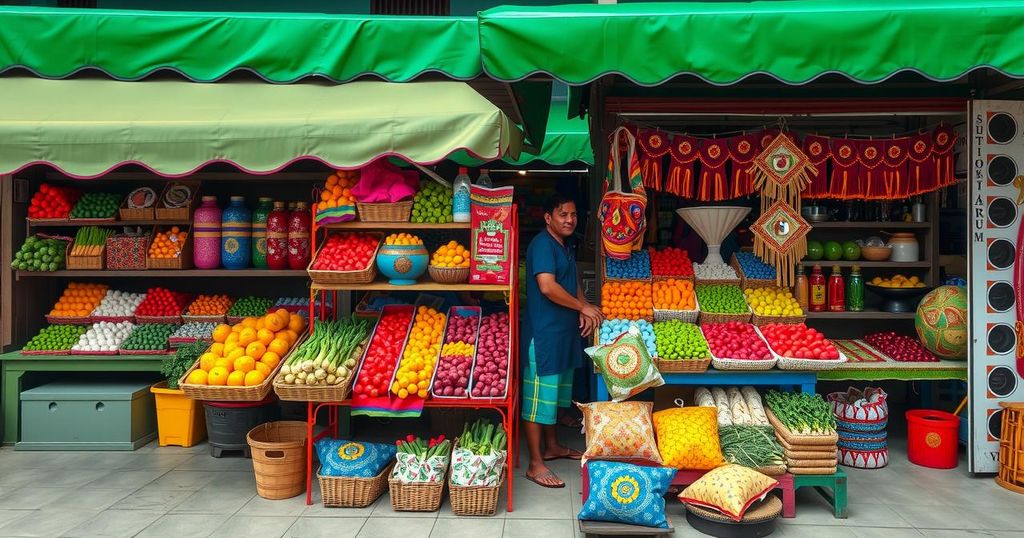Bangladesh faces slow economic growth due to high costs, interest rates, and political uncertainty. Industry leaders call for reforms in funding and skills for sustainable business growth, particularly as the country transitions from LDC status. The export sector remains strong, but challenges persist, necessitating policy enhancements and infrastructure improvements.
Bangladesh’s economic growth has recently decelerated, attributed to elevated interest rates, high energy costs, and political instability. Trade leaders and economists have pointed out that these financial burdens impede business expansion, countering the advantages of a large workforce. Zakir Hossain Nayan, the Convener of the Anti-Discrimination Business Forum at FBCCI, highlighted that high inflation has reduced consumer spending, which led to a significant decline in internal trade during mid-2023, although recovery seems to be underway.
Nayan noted that the liquidity crisis faced by banks, stemming from previous government actions that resulted in misused banking policies, has constrained new investments in businesses. In light of these challenges, he anticipates continued sluggish business growth throughout the second half of 2024. Conversely, he observed some improvements due to increased monetary flow in the banking sector and a decrease in inflation, alongside a resilient export sector with growth expected by 10-15% in 2025.
Taskeen Ahmed, the President of the Dhaka Chamber of Commerce & Industry (DCCI), reported a mere 1.8% GDP growth in the first quarter of the fiscal year, with manufacturing growing at a mere 1.43%. He underscored the need for skilled labor in SMEs, affordable long-term credit, and the need for infrastructure enhancements to attract foreign investment, particularly as the country prepares to transition out of the LDC category in 2026.
Ahmed emphasized the necessity of diversifying export avenues beyond readymade garments, pointing to significant potential in sectors like pharmaceuticals, leather goods, and IT. He proposed a comprehensive ‘Smooth Transition Strategy’ to facilitate these developments, urging the government to ensure access to affordable funds to stimulate business recovery.
Khandoker Rafiqul Islam, former President of BGMEA, commended the garment sector’s ability to meet export quotas recently while cautioning that persistent high costs and unstable energy supplies could hinder future success. He indicated that the domestic textile industry continues to grapple with inadequate capital and energy shortages.
According to the February Purchasing Managers’ Index (PMI), Bangladesh experienced a 1.1-point decrease, suggesting decelerating growth predominantly in construction and services, despite ongoing expansion in agriculture and manufacturing sectors. The PMI report highlighted that both agriculture and manufacturing maintained growth, albeit new exports and finished goods experienced sluggish advancement.
M Masrur Reaz, Chairman and CEO of Policy Exchange, stated that sustained expansion in Bangladesh hinges on stable political circumstances and swift execution of reforms. He stressed the importance of improved law and order and political consensus on future elections to foster recovery in the economy.
In summary, Bangladesh’s economic landscape is currently challenged by high costs, political uncertainty, and banking sector constraints, which hinder business expansion despite potential for improvement. Leaders in the industry have called for strategic reforms and greater investment in human capital, infrastructure, and diverse exports to ensure sustainable growth. The resilience observed in the export sector and an anticipated recovery further emphasize the importance of stabilizing the broader economic environment to support ongoing development initiatives.
Original Source: unb.com.bd






